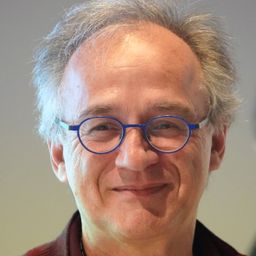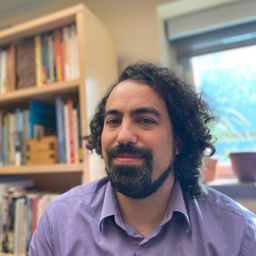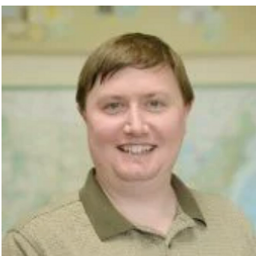
Györgyi Németh was a member of the board of directors of TICCIH between 1993 and 2009, and the director responsible for Central and Eastern Europe from 2006 until 2009. She established the Global and Local Section of TICCIH in 2010. She organized a major regional TICCIH conference in Hungary and Slovakia in 1999, and several national meetings as the president of TICCIH Hungary. As an associate professor in industrial history and industrial heritage studies at the University of Miskolc, Hungary, she has elaborated the first industrial heritage studies university program in her country. Her research interests include the theory and practice of industrial heritage conservation, as well as the evolution of heavy industrial landscapes, publishing Growth, decline, and recovery: heavy industrial regions in transition (2008). She has contributed, among others, to Industrial Heritage Re-tooled: the TICCIH Guide to Industrial Heritage Conservation (2012), and recently to Industrial Heritage and Regional Identities (2018).
Documents
Sessions auxquelles Dr Györgyi Németh PhD participe
Mercredi 31 Août, 2022
The Global and Local Section of TICCIH aims to continue its collaborative work by organising a separate session within the framework of the 18th congress in Montreal, Canada. Following its previous sessions centred on various subjects at the Freiberg, Tampere, Taipei and Lille TICCIH conferences, this time the Section will focus on the identity of industrial civilisation in the post-communist countries in Central and Eastern Europe from the angle of its industrial heritage, lost or preserv...
The Global and Local Section of TICCIH aims to continue its collaborative work by organising a separate session within the framework of the 18th congress in Montreal, Canada. Following its previous sessions centred on various subjects at the Freiberg, Tampere, Taipei and Lille TICCIH conferences, this time the Section will focus on the identity of industrial civilisation in the post-communist countries in Central and Eastern Europe from the angle of its industrial heritage, lost or preserv...
The Global and Local Section of TICCIH aims to continue its collaborative work by organising a separate session within the framework of the 18th congress in Montreal, Canada. Following its previous sessions centred on various subjects at the Freiberg, Tampere, Taipei and Lille TICCIH conferences, this time the Section will focus on the identity of industrial civilisation in the post-communist countries in Central and Eastern Europe from the angle of its industrial heritage, lost or preserv...
Vendredi 2 Septembre, 2022
Sessions auxquelles Dr Györgyi Németh PhD assiste
Dimanche 28 Août, 2022
Explorez les abords du Canal de Lachine, berceau de l'industrie au Canada. Profitant de l'accès à l'énergie hydraulique, aux réseaux de transport maritime et ferroviaire, de nombreuses usines se sont installées sur ses berges. Des milliers de Montréalais y ont travaillé et habité. Transformés en parc linéaire, les abords du Canal accueillent aujourd'hui de nombreuses résidences.Une visite à pied conçue et guidée par Héritage Montréal....
Joignez-vous aux organisateurs du congrès et aux membres du board de TICCIH pour un cocktail de bienvenue et quelques mots festifs de présentation, dans l’ancienne forge de l’École technique de Montréal, fondée en 1909, aujourd’hui intégrée au campus de l’Université du Québec à Montréal.
Lundi 29 Août, 2022
Si la vallée du canal de Lachine a été le berceau de l’industrialisation canadienne, la géographie industrielle métropolitaine ne s’y est pas confinée, peu s’en faut, Outre les grandes concentrations d’entreprises des quartiers centraux, elle est constituée des réseaux infrastructuraux, d’une douzaine de centrales hydroélectriques et des ensembles manufacturiers disséminés dans une quinzaine de petites villes aujourd’hui intégrées dans l’aire métropolitaine. La conférence proposera un surv...
Mardi 30 Août, 2022
Les efforts visant à préserver le patrimoine industriel s'inscrivent dans un contexte socio-économique et politique précis. Mais qu'est-ce qui est préservé et pour qui ? Et, par ailleurs, quelle est la relation entre les sites du patrimoine industriel et les communautés ouvrières soumises à la désindustrialisation qui les jouxtent souvent ? Steven High examinera les façons dont la préservation du canal de Lachine à Montréal, le principal site du patrimoine i...
Mercredi 31 Août, 2022
Le canal de Soulanges est une infrastructure, localisée sur la rive nord du Saint-Laurent, qui a été ouverte au trafic maritime en 1900, succédant alors au « vieux canal » de Beauharnois (établi depuis 1843 sur la rive nord du Saint-Laurent). Le canal de Soulanges a été abandonné en 1959, alors que s’ouvrait l’actuelle Voie maritime du Saint-Laurent qui relie les Grands Lacs à l’Atlantique. La conception du canal de Soulanges est due à l’ingénieur Thomas Monro (1831-1...
In this lecture, I would like to talk about deindustrialised communities, heritage and memory in the context of right-wing populism. Drawing on studies of memory and heritage, I argue that right-wing populists have cornered the market on talking about the past of deindustrialised communities. They have successfully misrepresented this rich and complex history to fuel rage, resentment, fear and reactionary nostalgia. Indeed, ‘the past’, and in particular the industr...
Jeudi 1 Septembre, 2022
De sa construction à sa restauration, plongez dans l’histoire et le présent de ce lieu incontournable du patrimoine industriel canadien. Voie maritime centrale au pays, port intérieur majeur, le Lowell canadien (recours à l’énergie hydraulique), berceau de l’industrialisation, Smokey Valley (recours à la vapeur), haut lieu de l’industrie manufacturière, le canal de Lachine est tout cela et plus encore. Car, il est également un lieu historique national où, depuis la réouverture du canal à l...
The use of industrial heritage is a profoundly important factor in the process of creating a sustainable economic, social, and political future for many communities occupying industrial heritage landscapes. More than ever we recognize the need for such communities to be capable of shaping and expressing their heritage in different forms in the context of current events and issues, and in doing so to inform both contemporary decision-making as well as the way their industrial heritage is re...
This lecture will argue that the landscapes of industrial heritage that can be found in different parts of the world are directly related to the place-specific trajectories of deindustrialization. In other words: the different ways in which deindustrialization impacts on local communities has a direct bearing on the emergence of forms of industrial heritage. I will differentialte between deindustrialization paths and related industrial heritage regimes in a) Anglo-...
Vendredi 2 Septembre, 2022
Les participants se retrouveront à l'entrée (il n'y en a qu'une) du métro Lionel Groulx et de là, ils longeront le canal jusqu'aux écluses de St-Gabriel. Cette zone était autrefois la plus industrialisée du Canada. C'est aujourd'hui une zone d'affluence entre le quartier difficile, mais en voie d'embourgeoisement, de Pointe-Saint-Charles, historiquement irlandais et français, et la Petite-Bourgogne, l'un des premiers quartiers multiraciaux de Montréal. Plusieurs anciennes usines ont été co...
In the refusal of people in communities abandoned by industrial capital to abandon their own places, we can read an implicit critique of the mobility and unaccountability of capital, raised by those who were once inside (however tenuously or uncomfortably) and now find themselves marginalized, “left behind.” The desire to catch up again, whether through attracting new investment or transvaluing abandoned sites as tourist attractions, makes this an essentially conservative critique that is ...














